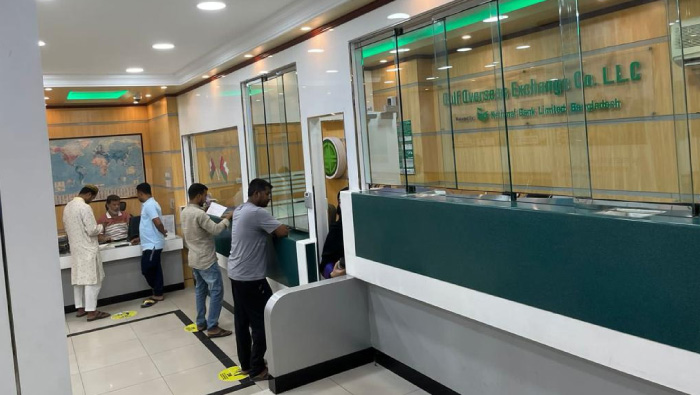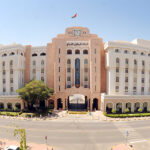The Indian rupee is trading close to an all-time low of 216.70 to the Omani rial after the BJP government’s below par performance in polls. The PM Narendra Modi’s party fell short of exit poll predictions and the majority mark on its own, according to financial experts based in Oman. R. Madhusoodanan, former SBI official and a financial expert, said, “The poll surveys had given higher numbers to the NDA, which led to the stock market rally and rupee appreciated against the previous close on Friday. But on Tuesday morning, when counting started, the results were not as per the expectations. Hence, the market reacted negatively and tumbled. Indian rupee also fell against US dollar and it touched INR83.55. The exchange houses are offering 216.70 and the INR-dollar rate is expected to be range bound in the next few days and will settle depending on the formation of the new government.”
Indian stock indices witnessed a bloodbath on the day the Indian Parliament results were announced. The BJP-led National Democratic Alliance led in over 290 seats while the INDIA alliance led on 229 seats, as per data from the Election Commission of India. The idea of a coalition government lead by the BJP at the centre led to widespread market anxiety and a sharp decline in stock indices. The BJP, which has been the dominant force in Indian politics for the past decade, is seen as a pro-industry party whose policies have generally favoured economic growth and market stability. The failure to secure a clear majority to BJP of its own raises concerns about the formation of a stable government and the continuation of economic reforms. At the closing bell, Sensex closed at 72,079.05 points, down 4,389.73 points or 5.74 per cent, while Nifty closed at 21,884.50 points, down 1,379.40 points or 5.93 per cent. All Nifty sectoral indices, barring Nifty FMCG, were deep in the red yesterday.
The uncertain political climate in India has had a direct impact on the stock market and the value of the Indian rupee. Investors are wary of the implications of a coalition government and the lack of a clear majority for the BJP. This has led to a sharp decline in stock indices and a depreciation of the Indian rupee against major currencies like the US dollar. The market is expected to remain volatile in the coming days as investors await clarity on the formation of the new government and its economic policies. The exchange rate of the Indian rupee against the Omani rial is currently at an all-time low of 216.70, with expectations that it will remain range bound until there is more certainty in the political landscape.
The impact of the Indian election results is not limited to the domestic market but has also reverberated in international markets. The formation of a coalition government in India has raised concerns among foreign investors who are closely watching the developments in the country. The performance of the Indian rupee against the US dollar is a key indicator of market sentiment and economic stability. With the rupee falling to INR83.55 against the dollar, investors are bracing for further uncertainty in the market. The resignation of the RBI Governor, Urjit Patel, has added to the economic turmoil, with experts predicting a challenging road ahead for the Indian economy.
The Indian government faces the daunting task of forming a stable coalition government that can address the challenges facing the economy. The failure of the BJP to secure a clear majority has raised questions about the future of economic reforms in India. Investors are closely monitoring the situation and are waiting for clarity on the policies that the new government will adopt to revive the economy. The stock market’s reaction to the election results reflects the uncertainty prevailing in the market and the need for a strong leadership that can steer the economy in the right direction. As the formation of the new government unfolds, all eyes are on the policies that will be put in place to address the economic challenges facing India.
The political turmoil in India has sent shockwaves through the stock market and the currency market, with investors bracing for further volatility in the coming days. The market sentiment is fragile as investors await clarity on the formation of the new government and its economic policies. The Indian rupee’s depreciation against major currencies is reflective of the uncertainty prevailing in the market and the need for a clear and stable government that can address the economic challenges facing the country. The upcoming days will be crucial for the Indian economy as it navigates through the turbulent waters of political uncertainty and looks towards a brighter economic future.


























